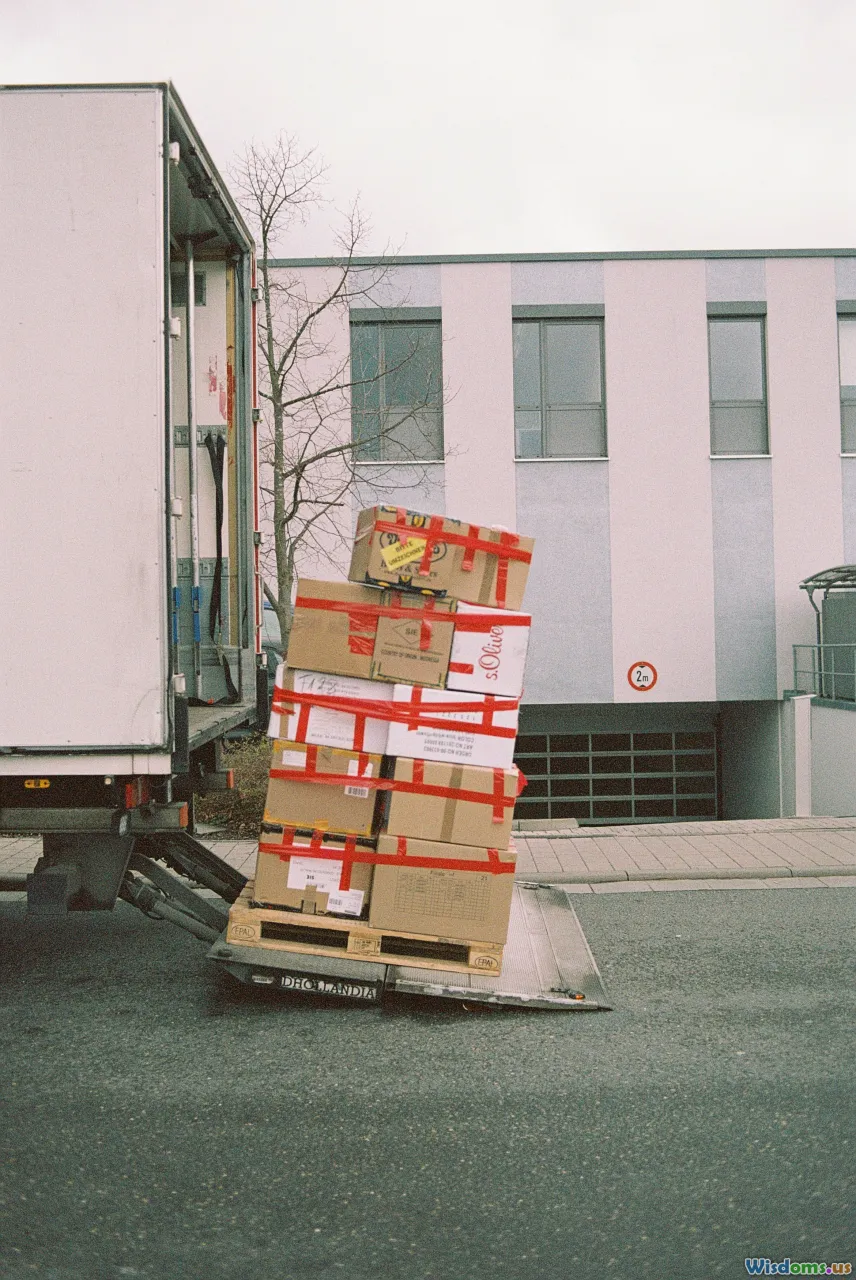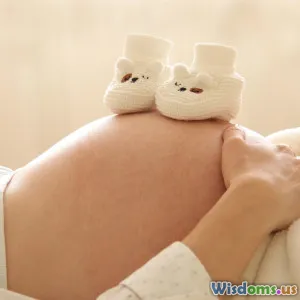
How Moving to a New City Can Transform Your Marriage for Better or Worse
15 min read Explore how relocating to a new city can impact your marriage, positively or negatively, with tips for navigating relationship changes. (0 Reviews)
How Moving to a New City Can Transform Your Marriage for Better or Worse
Uprooting your life and starting over somewhere new with your partner is more than a change of scenery—it's a profound relationship test. Some couples blossom, growing closer as they navigate unfamiliar territory together. Others, however, can find their marriage strained by the stresses of the unknown. The outcomes are as diverse as the reasons for moving, but one thing is certain: relocating will change your relationship. The only real question is how.
Let's explore the complex ways that moving to a new city can upend habits, challenge assumptions, and ultimately transform your marriage—either by forging a deeper bond or exposing cracks you never knew were there.
Exploring the Reasons for Moving

Before delving into how relocation affects marriage, it's useful to consider why couples choose to move. Each motive comes with its own set of expectations and stressors. The most common reasons include:
- Career Opportunities: A new job offer or a spouse's promotion can pull couples to unfamiliar cities. While career advancement is alluring, trailing spouses sometimes struggle with resentment or loss of purpose if they're leaving their own career behind.
- Family Considerations: For some, moving brings them closer to family, new schools, or better support systems. For others, it may mean moving far away, intensifying reliance on one another as a source of support.
- Cost of Living: Escaping expensive areas for more affordable ones promises less financial stress but can bring emotional costs—like missing old neighborhoods, routines, or friends.
- Fresh Start: The hope of renewal after a turbulent period, such as after a separation, loss, or simply a desire to break monotony.
Take Emily and Jake*, for instance, who moved from bustling Chicago to a quiet suburb in Oregon after Jake landed his dream job. While they welcomed lower rent and a slower pace, Emily grappled with leaving behind both a meaningful career and a close-knit social circle. Their contrasting experiences with the transition created both friction and opportunities for empathy.
*Names changed for privacy.
Navigating the Early Stressors

The honeymoon phase of a new city often doesn't last long. Cohabitating in temporary housing, living out of suitcases, and figuring out which pizza place delivers might sound trivial, but such details quickly escalate into friction.
Common Early Stressors:
- Physical Exhaustion: Constant packing, cleaning, and errand runs.
- Decision Fatigue: Deciding on a new apartment, negotiating lease agreements, and scouring for nearby amenities.
- Loss of Routine: Moving disrupts everything from morning rituals to social calendars. Suddenly, spouses are each other's main—sometimes only—companions.
These stressors can reveal the couple’s default communication and coping styles. Couples who can articulate needs, delegate tasks fairly, and provide emotional support often make it through this “crunch period” stronger. Conversely, mismatched expectations or unspoken resentments can magnify under pressure. Studies show that major life transitions, like relocation, can both enhance marital satisfaction if navigated together, or increase the risk of conflict if mismanaged (The Gottman Institute).
The Test of Identity and Self-Discovery

A new zip code can provoke deep questions of personal identity—especially for couples who’ve lived in the same place for years. Roles that once felt secure (‘the breadwinner,’ ‘the social organizer,’ ‘the parent on pickup duty’) may be scrambled.
This identity shake-up impacts marriage in various ways:
- Career Transitions and Sacrifices: One partner might revel in a new professional challenge, while the other feels adrift, uncertain about next steps. For example, if your spouse’s career accelerates while yours pauses, even temporarily, it can cause self-doubt, jealousy, or guilt.
- Redefining Social Roles: If you’re used to Sunday barbecue with the neighbors or PTAs with longtime friends, moving forces you to confront the void—will you fill it with new people or meaningful activities, or lean more heavily on your spouse for social fulfillment?
- Emergence of New Hobbies: Forced reinvention often means new hobbies, routines, or social circles. Successful couples approach these with curiosity rather than clinging to old routines, using reinvention as a bonding experience.
Strengthening or Straining Communication

Communication is the linchpin in how couples weather a move. It easily becomes a casualty under stress, but it’s also the skill that largely determines whether relocation grows or strains a relationship.
Top Tips for Effective Communication:
- Share Honest Fears and Expectations
- Instead of bottling frustration about, say, missing familiar haunts, voice it respectfully.
- Check In Regularly
- Beyond logistical updates, ask each other emotionally loaded questions, such as: How are you really adjusting? What are you missing?
- Avoid the Blame Game
- Relocation regret is natural, but resentful arguments help no one. Use “I feel” statements instead of “you never...” accusations.
For example, Ana and Ravi saw their marriage deepen after moving from Miami to Seattle. Weekly Friday-night "state of the union" talks helped them address stress before it snowballed.
The Challenge of Building New Support Systems

Few things test a marriage like the absence of your established support network. Back home, you might have relied on friends for advice, child care, or a sympathetic ear. In a new city, you’re each other's primary emotional first responder.
Strategies to Thrive Without Old Networks:
- Be Open to Making New Connections: Join community groups, take classes, or participate in local events. Couples who intentionally cultivate new friends—both individually and together—report greater satisfaction (American Psychological Association).
- Leverage Digital Tools: Use technology as a bridge, not a crutch. Stay in touch with friends and family while immersing yourself locally.
- Support Each Other’s Social Outings: It might sting to see your partner go to work events while you're still job-hunting or to new clubs without you, but mutual encouragement paves the way for broader support systems.
Over-dependence on your spouse can stunt both parties’ personal growth, but so can social isolation. Aim for a balance between relying on each other and fostering an outside network.
Financial Strains and Adjustments

Money is one of marriage's cardinal stressors—and moving often amplifies financial anxieties. Rent, job transitions, unexpected fees, even different price points for groceries and gas—all rock the financial boat.
Financial Flashpoints to Anticipate:
- Hidden Moving Costs: Boxes, professional movers, deposits, initial furnishing—the price tag always exceeds projections.
- Dual Incomes vs. Single Streaming: A pause in one spouse’s employment (common during relocation) may make things tight. Couples need transparency and planning.
- New Budgets: What worked before—fancy takeout or expensive hobbies—may need recalibration in a city where the median rent or schools are pricier or cheaper.
Proactive budgeting together and discussing money openly can not only stave off anxiety but strengthen the "we're in this together" partnership. Try jointly managing a moving spreadsheet or calendar to track expenses and deadlines.
Cultural Shifts and Relationship Growth

The move to a new city isn’t just geographical; it’s intensely cultural. Whether crossing a few states or continents, couples encounter new values, climates, and pace of life.
Here’s where couples can either bond through shared curiosity—or stumble over unresolved value differences:
- Adapting to Diversity: Navigating new food, customs, or languages side by side gives couples new topics for connection and teaches openness.
- Dealing With Culture Shock: Even minor differences—like business hours or holiday traditions—can take some adjustment. How couples tackle these together often foreshadows future adaptability.
The key is to view unfamiliarity as an adventure rather than a crisis. Sharing the experiences—both triumphs (discovering a new favorite coffee spot) and misadventures (accidentally taking the wrong bus)—creates shared narratives, strengthening identity as a team.
Finding and Maintaining Intimacy Amid Change

With the pressures of moving, routine romance can fall by the wayside. Sleep schedules, commutes, and emotional strain can all erode intimacy—yet adjusting to a new city together also builds new opportunities for closeness.
How to Maintain and Even Deepen Intimacy:
- Plan Regular Date Nights: They need not be extravagant. Even at-home movie nights help.
- Share Novel Experiences: Research shows novelty kindles romance. Try new restaurants, hiking trails, or city events together.
- Discuss Boundaries and Desires: Moving is vulnerable. Be open about how you’d like to connect, emotionally and physically.
For Sarah and Derek, a cross-country move reignited their marriage. Exploring city museums and live music together helped them rediscover shared joy and attraction.
Warning Signs and When to Seek Outside Help

Even the best-matched partners can flounder. Watch for patterns suggesting the stress of moving is straining your marriage beyond do-it-yourself repair:
- Persistent arguments or withdrawal
- Loss of interest in shared activities
- Ongoing feelings of regret or resentment
- Trouble with sleep, appetite, or mental health
Seeking support isn't failure—it's proactive care. Many couples benefit from short-term therapy to navigate major life transitions. Consider reaching out to local counselors, or using teletherapy if you prefer continuity with a therapist from your old city.
Final Thoughts: Turning Transition Into Transformation

Relocating is rarely simple, and no two couples' experiences are alike. But one universal truth emerges: moving to a new city acts as both a magnifying glass and a forging fire for marriage. By confronting disruption directly—treating it as a shared challenge, not a wedge—couples often find themselves transformed, for better or worse.
Those who weather the storm with compassion, honesty, and a spirit of adventure don't just survive the move—they often emerge with a revitalized partnership, a deeper appreciation for each other's strengths, and a trove of new joint memories waiting to be built.
Rate the Post
User Reviews
Popular Posts

















